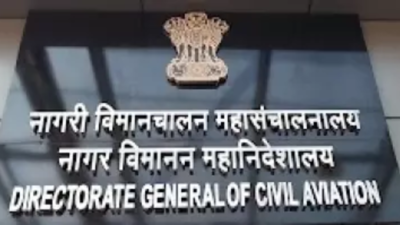
The DGCA’s intervention follows a growing concern over the airline's maintenance procedures, particularly related to emergency equipment. The issue came to light after investigators pointed to unaddressed safety lapses that could have contributed to the tragic crash in Ahmedabad, which claimed multiple lives and raised alarms about broader safety issues in the aviation sector.
Aviation experts are questioning how these deficiencies persisted despite regulations stipulating routine inspections. The DGCA, as the country's primary aviation authority, has regulatory oversight to ensure that airlines comply with safety protocols, including the inspection and maintenance of emergency systems.
While Air India has not yet publicly commented on the specifics of the DGCA's enforcement measures, sources familiar with the matter suggest that the airline is likely to face significant penalties or other corrective actions for the oversight. The DGCA's decision to act swiftly underscores the importance of maintaining stringent safety standards in the industry.
This enforcement comes amid heightened scrutiny of India's aviation sector, which has faced challenges in maintaining high standards of safety despite rapid growth. Accidents, both minor and major, have spurred a reevaluation of airline practices, especially concerning the upkeep of life-saving equipment such as emergency slides, oxygen masks, and fire extinguishers.
The timing of this development is particularly sensitive, as it follows a series of incidents involving aircraft failures and delayed repairs, sparking calls for more rigorous monitoring and accountability from both the airlines and regulatory bodies. Additionally, the public’s growing awareness of air safety issues has further amplified concerns about the airline industry's adherence to regulatory norms.
According to aviation safety experts, the failure to inspect critical emergency systems can result in catastrophic outcomes. "Emergency slides are designed to save lives in case of an evacuation. Delays in their inspection or maintenance could prevent passengers from escaping in time during an emergency," said one expert, requesting anonymity due to the sensitivity of the matter.
Air India, which has long been a staple of the Indian aviation landscape, has been under the microscope for various safety lapses in the past. The airline, which was privatised in 2021 and now operates under the Tata Group, is striving to regain its reputation and modernise its fleet. However, setbacks such as the failure to address essential safety equipment could undermine its efforts to improve its standing in the global aviation market.
The DGCA’s action is expected to trigger a wider conversation about accountability in the airline industry, particularly as India’s aviation sector sees continued growth in passenger traffic. Industry analysts point to the need for a robust framework that not only ensures routine maintenance but also promotes transparency and accountability in the way airlines address safety concerns.
As investigations into the Ahmedabad crash continue, the DGCA's decision to take enforcement action will likely serve as a precedent for future cases involving non-compliance with safety regulations. Experts are calling for stronger enforcement measures and better coordination between the regulatory body and airlines to ensure that such oversights are avoided in the future.
